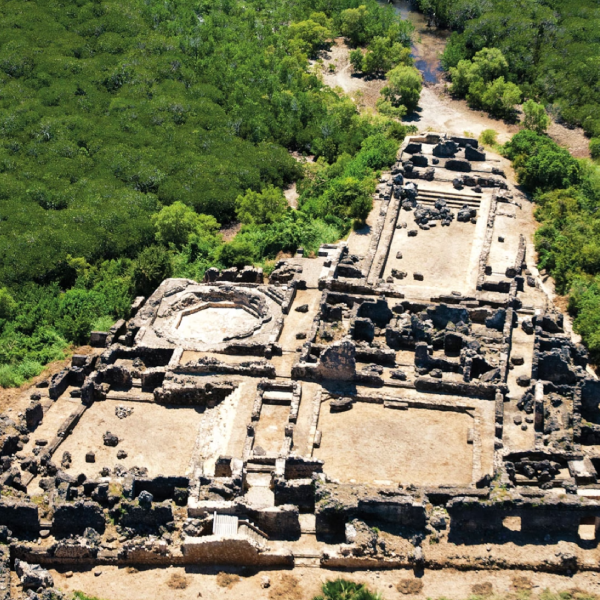Kilwa Kisiwani is a historic island located off the coast of southern Tanzania in the Indian Ocean, renowned for its ancient ruins and rich cultural heritage. Once a powerful trading port, the island boasts the ruins of medieval Swahili architecture, including the famous Kilwa Mosque and the Great Mosque. Kilwa Kisiwani is a UNESCO World Heritage site that offers visitors a chance to explore the rich history of the region, combined with stunning beaches and clear waters. It is a hidden gem for those seeking both history and natural beauty.
Getting There
Kilwa Kisiwani is accessible by boat from the town of Kilwa Masoko on the mainland. The town is connected by road to Dar es Salaam, approximately 300 kilometres away, and can be reached by bus or car. From Kilwa Masoko, boats depart regularly to Kilwa Kisiwani, a scenic trip that takes about 30 minutes. Travellers can also charter private boats or arrange tours through local operators. The journey to Kilwa Kisiwani provides a unique experience of the coastline and the island’s remote charm.
What to Do
- Explore the Kilwa Ruins, including the Great Mosque and Sultan’s Palace, remnants of the island's rich history.
- Visit the Kilwa Kisiwani Fort for a glimpse into the island’s defense history.
- Enjoy the pristine beaches, perfect for swimming, sunbathing, and relaxing.
- Snorkel or dive in the clear waters around the island, home to vibrant coral reefs.
- Take a boat tour to explore nearby islands and secluded coves.
- Visit Kivinja Hill for panoramic views of Kilwa Kisiwani and its surroundings.
When to Go
The Best Time to Visit Kilwa Kisiwani is during the dry season, from June to October. This period offers pleasant weather with clear skies, making it ideal for exploring the ancient ruins, relaxing on the beaches, and enjoying boat tours. Temperatures are mild, and the chances of rainfall are minimal, providing excellent conditions for outdoor activities. The shoulder months of November to February also offer favourable conditions, though there may be occasional showers. The rainy season, from March to May, is less favourable for outdoor exploration due to heavy rains.










